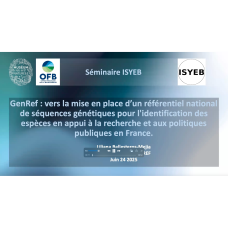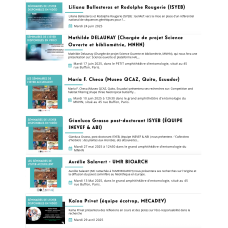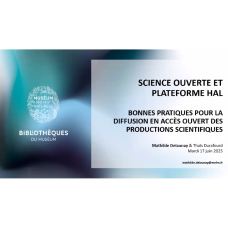Gustav Paulay du Florida Museum of Natural History

Soutenance de thèse en amphithéâtre Rouelle

Soutenance de thèse en amphithéâtre Rouelle
Much progress has been made in documenting marine biodiversity and synthesizing that knowledge, yet species level data are often problematic and identification remains challenging. This is largely a consequence of the paucity of taxonomic syntheses. Most taxa have not been revised, so species limits and names are often problematic. Historical records are often difficult to interpret, and many species remain undescribed. The problem is exacerbated by the ubiquity of cryptic species and anthropogenic biotic interchange. Yet the diversity of marine macrobiota is manageable. Local coastal macrobiotas comprise thousands to a few tens of thousands of species, while globally less than a quarter million marine species have been described, and a few times as many animal species remain undescribed. A recharacterization of the coastal macrobiota based on new collections provides the most effective way forward. Large surveys can cost-effectively sample diversity. Species can be rapidly delineated with modern, integrative tools that include digital imaging, DNA sequencing, and taxonomic study, and tracked with a working nomenclature and unique identifiers. Interregional comparisons then lead to global synthesis. I will use examples from recent surveys to demonstrate the taxonomic challenge and effectiveness of the proposed solution.
–-



